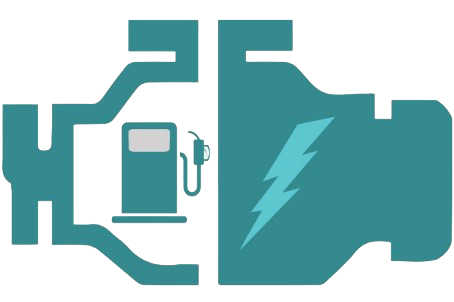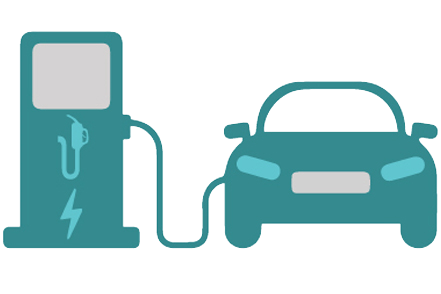An electric vehicle is defined by a vehicle that uses one or more electric motors as a source of propulsion. Amazingly, electric vehicles have been around since 1832! However, the development of these early vehicles quickly died out with the discovery of cheap and abundant oil. In the late 20th century, oil prices began to rise significantly. This peaked the interest of the automotive manufactures. Slowly but surely, electric vehicles began to make their way into the mainstream vehicle markets. There are three types of electric vehicles now available. Fully electric vehicles, plug-in hybrid vehicles and hybrid vehicles. But what is the difference between them?

These are the Crème de la crème of electric vehicles in our opinion. Fully electric vehicles emit absolutely no harmful emissions directly. They are the greenest vehicles we have on offer. The on-board battery powers all aspects of the vehicle. From the electric motor to the on-board heating systems. When leasing one of these vehicles it is important that consider what kind of driving you are doing. Once the battery runs flat you're stuck if you cannot reach a charge point in time. Similarly, though, this is the same for petrol vehicles. If you’re in a big city, there are now many charge points. At the moment, it isn't quite as good as the current petrol station infrastructure, however charge point coverage is improving exponentially.

Plug-in hybrids are essentially a meet in the middle between fully electric and normal hybrids. They do not have the same pure electric range as fully electric vehicles due to having a smaller capacity
battery. They use a petrol engine to help supplement the electrical energy provided from the battery. All propulsion is still achieved by means of an electric motor. This electric motor is just sometimes also powered by a combustion engine. The combustion engine supplements the battery at times of increased power requirements. For example, traveling at high speeds or climbing a steep hill.
The benefit of having a plug-in hybrid is that it's difficult to run out of juice completely. You can use this car on pure petrol, as the petrol station infrastructure is better than the current electric charge point network. Its difficult to be caught in a position where you can't make it to your nearest petrol station.

Standard hybrid vehicles have no electric inputs. All the electricity used for hybrids is generated on-board this is done via a process called regenerative breaking. This process uses the vehicles momentum during braking to recover energy. Hybrid vehicles also charge the electric battery via the internal combustion engine. This seems a little counterintuitive however powering a vehicle this way means that the engine can run at its optimum efficiency for longer.
Each of the different types of electric vehicles have their own benefits and drawbacks. The below diagrams rate the different types of electric vehicles based on overall range, emissions and fuel cost. These diagrams are only a rough guide and may not be true in every scenario. For example, if you have a plug-in hybrid and do not charge it up. A fully electric vehicle may have a greater range than the plug-in hybrid vehicle.
These are ranked from the highest range capability to the lowest.



These are ranked from the least expensive down to the most.



Finding what's right for you can be quite difficult if there's a lot of options to choose from. With technology advancing and the range of electric vehicle choices expanding - making a decision has become much less black and white. It really comes down to considering these three key factors:
Do you have a charger already installed at your home or work? If not, do you have the space to be able to do this? Perhaps you might not have off road parking. All of these things need to be considered when leasing an electric vehicle. A hybrid should be chosen when you are unable to charge regularly.
How many miles do you do? Will you be traveling distances over range of the electric vehicle you have your eyes on? If you are, how frequently? Can you take a break to find a charge point? For work commuters, you may not want to stop and charge your vehicle if you already have a long journey to your place of work. Fully electric vehicles are perfect for those doing fairly short journeys.
Making the switch to electric can be quite a difficult decision. There is a fair amount of knowledge you need to understand in order to make a decent judgement. Hybrids, plug-in hybrids and fully electric vehicles all have their own unique benefits. If you require any additional information or have any questions, please don't hesitate to get in touch with one of our friendly team.